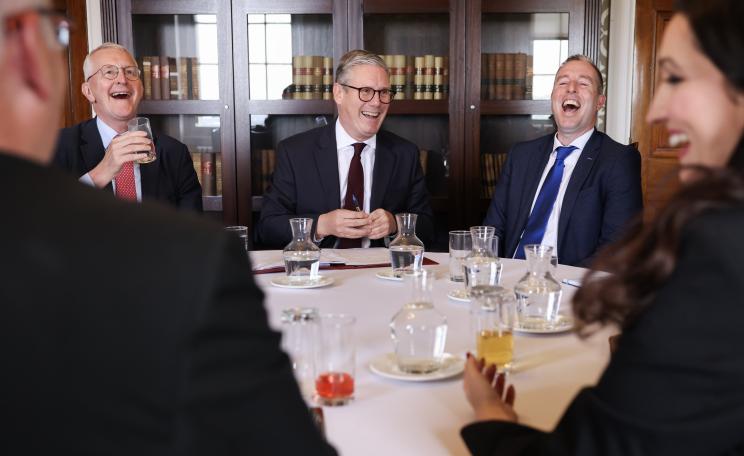There has been much trumpeting of the G20 meeting in London this month, where the leaders of the world’s dominant economies will assemble to miraculously reverse the economic catastrophe facing the world. Brown’s superhero cloak is looking tattered and tarnished, and the rubric for the meeting – ‘growth, jobs, stability’ – suggests that we are unlikely to see anything more exciting than a recycling of the same old globalisation mantras.
Trade is not included in the top-three objectives, but you must have noticed the fearful reactions of the corporate globalisers to the clear indication that people across the world demand the right to control their own economies and protect their livelihoods. The claim that trade benefits everybody is repeated in catechistic fashion with little or no evidence quoted in support. A recent book called, rather neatly, Making Poverty: A History [by Thomas Lines, Zed Books] details the negative consequences for the world’s poor of the ‘free’ trade system of the past 30 years or so. The implications for the global atmosphere of transporting goods unnecessarily are equally clear. So step one on the path to stability and security, for people and planet, would be localisation rather than globalisation, moving towards a world where countries aim for selfreliance rather than dominance through competition.
If trade was one of the pillars of the global economic architecture then money was the other. The present financial edifice was constructed way back in 1944 at the New Hampshire resort of Bretton Woods. The agreement reached there was designed to avoid the instability that had led to the 1929 crash, the depression of the 1930s and the war that followed it. We are risking allowing this frightful history to repeat itself unless the agenda for the G20 meeting is politicised and radicalised.
The basis of the Bretton Woods agreement was political management of the global economy. It had two major weaknesses. First, most of the world’s countries were still ‘owned’ by colonial powers; their interests were not represented and their disastrous economic experience since then is the result. Second, the dollar was given supremacy in the world economy, allowing the untrammelled imperialist expansion of the US over the past 65 years.
Ten years ago, Richard Douthwaite proposed the Ebcu – environment-backed currency unit – as a neutral international currency to replace the dollar. The currency would work in conjunction with the contraction and convergence model for limiting and then sharing fairly the right to produce carbon dioxide. Licences to produce CO² could only be traded in the new currency. We could argue for the Ebcu as a stabilising force in the global economy, a carbon rather than a gold standard, reflecting the importance in green economics of energy rather than money. The Ebcu proposal would allow the ecobuilders to take control of the global economy and include a solution to climate change as a structural component of the new economic paradigm. Without it, neo-Keynesian attempts to reinflate the sagging balloon will continue to force planetary limits as they have done in the past.
What the West needs most is to eliminate its unpayable debts; what the world needs is a solution to climate change. The Ebcu could encompass and satisfy these two needs. Putting 40 panicking men (and women?) with conflicting interests and different cultural baggage in a room together might not seem to be the best way of achieving a miracle. Once we put climate change on the table alongside the financial crisis, however, all the players have much to lose, and therefore also much to gain from a negotiated settlement.
Molly Scott Cato is a reader in green economics at the Cardiff School of Management.







